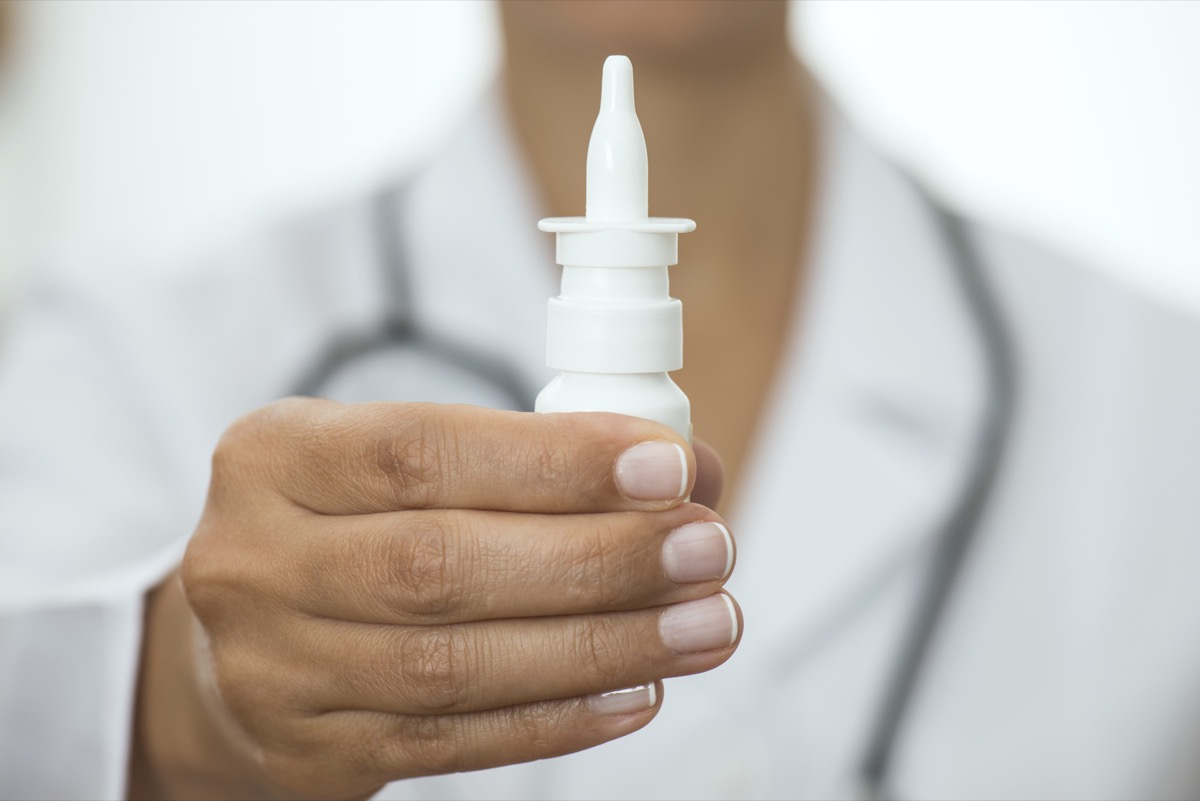Medical researchers at multiple facilities around the globe have found hope in using the inhalation method of administering the immunization for the same reason that many other initial vaccines work: It comes down to how the virus typically enters your body. In a June study out of the University of North Carolina, researchers determined that the coronavirus infects the nasal cavity to a far greater degree than it does anywhere else in the respiratory tract—which is why inhaling the vaccine may prove most effective. Since a vaccine administered into your muscles via a syringe isn’t known for generating the kind of immune response that can work on a virus such as COVID-19, administering doses by airway can be highly effective, The New York Times reports. “When we take apart and present pathogens in a way that the immune system doesn’t naturally see them, it’s not as ideal,” Avery August, PhD, an immunologist at Cornell University, told The Times. “You run the risk of not generating the right immune response.“ae0fcc31ae342fd3a1346ebb1f342fcb While many first-round vaccine studies focused mainly on traditional intramuscular injections, a number of second-round tests of potential nasal sprays have shown promise, giving the areas of the body most affected by the virus a chance to build immunity. “This takes the vaccine itself right down into the lungs where it can access the same tissue that would be reached by the virus infection,” Robin Shattock, professor and immunologist at Imperial College London, said in June, according to the Daily Mail. RELATED: For more up-to-date information, sign up for our daily newsletter. But other researchers stress that there may be more to consider before success can be declared. “There has been some small studies of vaccines delivered by aerosol and of course we have the intranasal delivery of the flu vaccine used in children,” Sarah Gilbert, professor of vaccinology at Oxford University, told The Daily Mail. “But delivering a vaccine through the nose is actually getting very close to the brain, so we need to make sure that’s gonna be safe.” Gilbert continued by saying that researchers need to “understand how the different types of antibodies in the respiratory tract could be generated by vaccination—and it may mean you could have a more effective vaccine by delivering to the respiratory tract or indeed orally.” And for more on the potential COVID vaccine, check out This One Hope Doctors Had About Coronavirus Is Slipping Away, Expert Warns.
